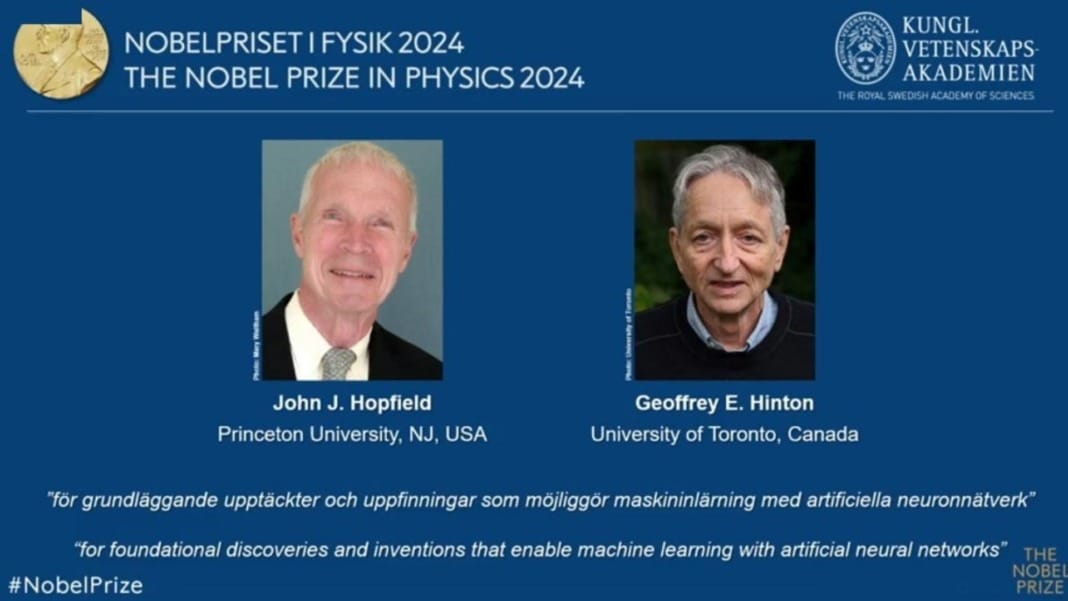Two renowned scientists have been awarded the prestigious Nobel Prize in Physics for their groundbreaking contributions to machine learning and artificial neural networks. John Hopfield, an emeritus professor from Princeton University, and Geoffrey Hinton, often called the “Godfather of AI,” have made significant advances that have transformed how computers solve complex problems.
Discoveries that shaped AI
John Hopfield is credited with developing an associative memory model, which allows computers to store and reconstruct images and various data patterns. This model is fundamental in how artificial intelligence systems process and recognise data. By mimicking the way human memory works, Hopfield’s invention has paved the way for new applications of AI in everything from image recognition to problem-solving algorithms.
This year’s physics laureates’ breakthroughs stand on the foundations of physical science. They have showed a completely new way for us to use computers to aid and to guide us to tackle many of the
— The Nobel Prize (@NobelPrize) October 8, 2024
challenges our society face.
Thanks to their work humanity now has a new item in… pic.twitter.com/0sGCbEoMsS
On the other hand, Geoffrey Hinton has revolutionised the field by creating methods that enable machines to find patterns in data autonomously. This development led to the breakthrough of AI systems’ ability to identify specific image elements, which has had far-reaching implications for industries that rely on data analysis and visual recognition technologies.
Nobel Committee praises transformative impact
The Nobel Prize committee commended the laureates’ contributions, stating on X, “This year’s physics laureates’ breakthroughs stand on the foundations of physical science. They have shown us a completely new way to use computers to tackle the many challenges society faces today. Thanks to their work, humanity now has a powerful new tool that can be used to address various problems for the betterment of society.”
The committee noted that machine learning based on artificial neural networks is currently reshaping various aspects of life, including science and engineering. These technologies are not only streamlining everyday tasks but are also pushing the boundaries of research and development in various sectors, from healthcare to engineering.
Concerns about the future of AI
While Geoffrey Hinton has been instrumental in advancing AI, he has also voiced concerns about its potential risks. After spending many years as part of Google’s deep-learning team (Google Brain, which merged with DeepMind in 2023), Hinton resigned in May 2023 to openly address the dangers of AI. His main concerns include the spread of misinformation through AI-generated content and the potential loss of jobs due to automation. He also warned about the rise of fully autonomous weapons, which could have far-reaching consequences for global security.
Despite these concerns, Hinton remains optimistic about the potential benefits of AI, particularly in healthcare. He noted that AI could revolutionise how we diagnose and treat diseases, enhancing human well-being. However, he also cautioned, stating that AI systems may eventually surpass human intelligence, an outcome we are not yet prepared for. “It’s going to exceed people in intellectual ability. We have no experience of what it’s like to have things smarter than us,” he told reporters.
Geoffrey Hinton’s contributions to AI, which earned him a Turing Award in 2018, have now earned him the Nobel Prize. However, his mixed feelings about the future of AI remind him of the complex ethical questions that come with technological progress.





